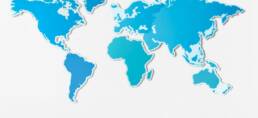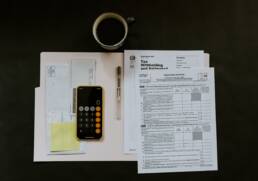MPSA Awards
Who is it Okay to Punch? An Experimental Investigation of Support for Intolerance in the Form of Physical Violence
By Frank J. Gonzalez and Alexandra McCoy The following blog post is a summary of the research that co-won the Midwest Political Science Association’s Best Paper in American Politics Award (presented at the 2021 MPSA Annual Conference). The variety of ways in which we have seen political violence…
Blocking the Blockers: Charrettes, Urban Planning, and Deliberative Democracy
By: Adam Rego Johnson, The Graduate Center, CUNY The following blog post is a summary of the research that won the Midwest Political Science Association’s Best Paper by an Undergraduate Student Award (presented at the 2021 MPSA Annual Conference). The charrette is a participatory design tool for…
Land Reform and Civil Conflict: Theory and Evidence from Peru
By Michael Albertus, University of Chicago 2021 AJPS Best Article Award Honorable Mention for the research entitled “Land Reform and Civil Conflict: Theory and Evidence from Peru” The distribution of land to the landless has directly affected well over one billion people since World War II in…
Do International Employment Opportunities Impact Individuals’ Political Preferences and Behavior?
By Nikhar Gaikwad, Kolby Hanson, and Aliz Toth Robert H. Durr Award for Best Paper “applying quantitative methods to a substantive problem,” presented at the 2019 Midwest Political Science Association Annual Meeting Millions of people around the world migrate overseas for employment each year, and…
Their economic pain, our emotional gain: Can schadenfreude motivate responses to redistributive policies?
By Hannah Nam, Samuel Jens, and Yanna Krupnikov New Jersey is one of the first states expected to adopt a “millionaires tax” that raises taxes on those who make over a million dollars a year. In announcing the new policy, the state’s governor, Phil Murphy, stated, “We do not hold any grudge at all…
Govern the Ungoverned: How State Presence Leads to Civil Conflict
By Luwei Ying, Ph.D. Candidate, Department of Political Science, Washington University in St. Louis

Understanding and Reducing Biases in Elite Beliefs About the Electorate
by Miguel M. Pereira, a Ph.D. candidate in the Department of Political Science at Washington University in St. Louis.

How Ideology, Economics and Institutions Shape Affective Polarization in Democratic Polities
Summary by Noam Gidron, James Adams, and Will Horne Concerns over the health of democratic norms and institutions have intensified in recent years (e.g., Levitsky and Ziblatt 2018), with political polarization often cited as a key driver of democratic dysfunction. The rise of affective polarization…
How War Changes Land: The Ecological Consequences of the US Bombing of Cambodia
By Erin Lin
 Example of bomb found during…
Example of bomb found during…
The Examination of the “Other:” An Insight Into The Asian Pacific Islander Experience in the Prison Industrial Complex
By Michelle M. Hicks, Willamette University
 Who are the “others” inside the…
Who are the “others” inside the…




